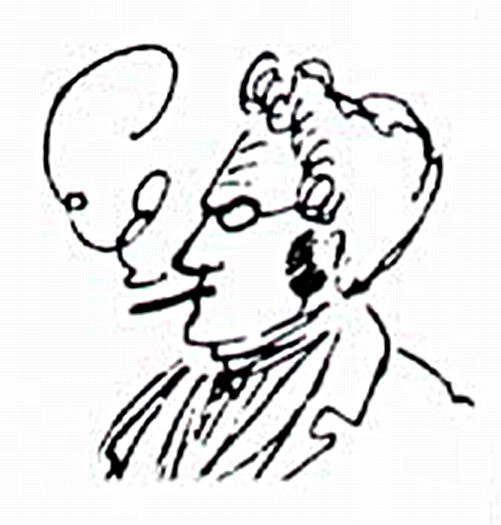Max Stirner słynne cytaty
„Wielcy są wielcy tylko dlatego, że my klęczymy.”
Jedyny i jego własność
Denke nicht, daß Ich scherze oder bildlich rede, wenn Ich die am Höheren hangenden Menschen, und weil die ungeheure Mehrzahl hierher gehört, fast die ganze Menschenwelt für veritable Narren, Narren im Tollhause ansehe. (niem.)
Jedyny i jego własność
Źródło: s. 57 http://books.google.pl/books?id=7fsNAQAAIAAJ.
Max Stirner: Cytaty po angielsku
“Everything sacred is a tie, a fetter.”
Cambridge 1995, p. 192
The Ego and Its Own (1845)
Źródło: The False Principle of our Education (1842), p. 12
Źródło: The False Principle of our Education (1842), p. 11
“The men of the future will yet fight their way to many a liberty that we do not even miss.”
Cambridge 1995, p. 114
The Ego and Its Own (1845)
S. Byington, trans. (1913), p. 383
The Ego and Its Own (1845)
Źródło: The False Principle of our Education (1842), p. 19
S. Byington, trans. (1913), p. 191
The Ego and Its Own (1845)
Stirner's Critics (1845)
Źródło: The False Principle of our Education (1842), p. 21
Źródło: The False Principle of our Education (1842), p. 25
“I am owner of my might, and I am so when I now myself as unique.”
In the unique one the owner himself returns into his creative nothing, of which he is born. Every higher essence above me, be it God, be it man, weakens the feeling of my uniqueness, and pales only before the sun of this consciousness. If I concern myself for myself, the unique one, then my concern rests on its transitory, mortal creator, who consumes himself, and I may say: All things are nothing to me.
Dover 2005, p. 366
The Ego and Its Own (1845)
Only a formal and material training is being aimed at and only scholars come out of the menageries of the humanists, only "useful citizens" out of those of the realists, both of whom are indeed nothing but subservient people. Our good background of recalcitrancy [sic] gets strongly suppressed and with it the development of knowledge to free will. The result of school is then philistinism.
Źródło: The False Principle of our Education (1842), p. 23
Truth consists in nothing other than man's revelation of himself, and thereto belongs the discovery of himself, the liberation from all that is alien, the uttermost abstraction or release from all authority, the re-won naturalness. Such thoroughly true men are not supplied by school; if they are there, they are there in spite of school.
Źródło: The False Principle of our Education (1842), p. 21
Attributed in Forbes Vol 38 Iss. 2 (1936) p. 18, and in Lifetime Speaker's Encyclopedia (1962) by Jacob Morton Braude, p. 275
